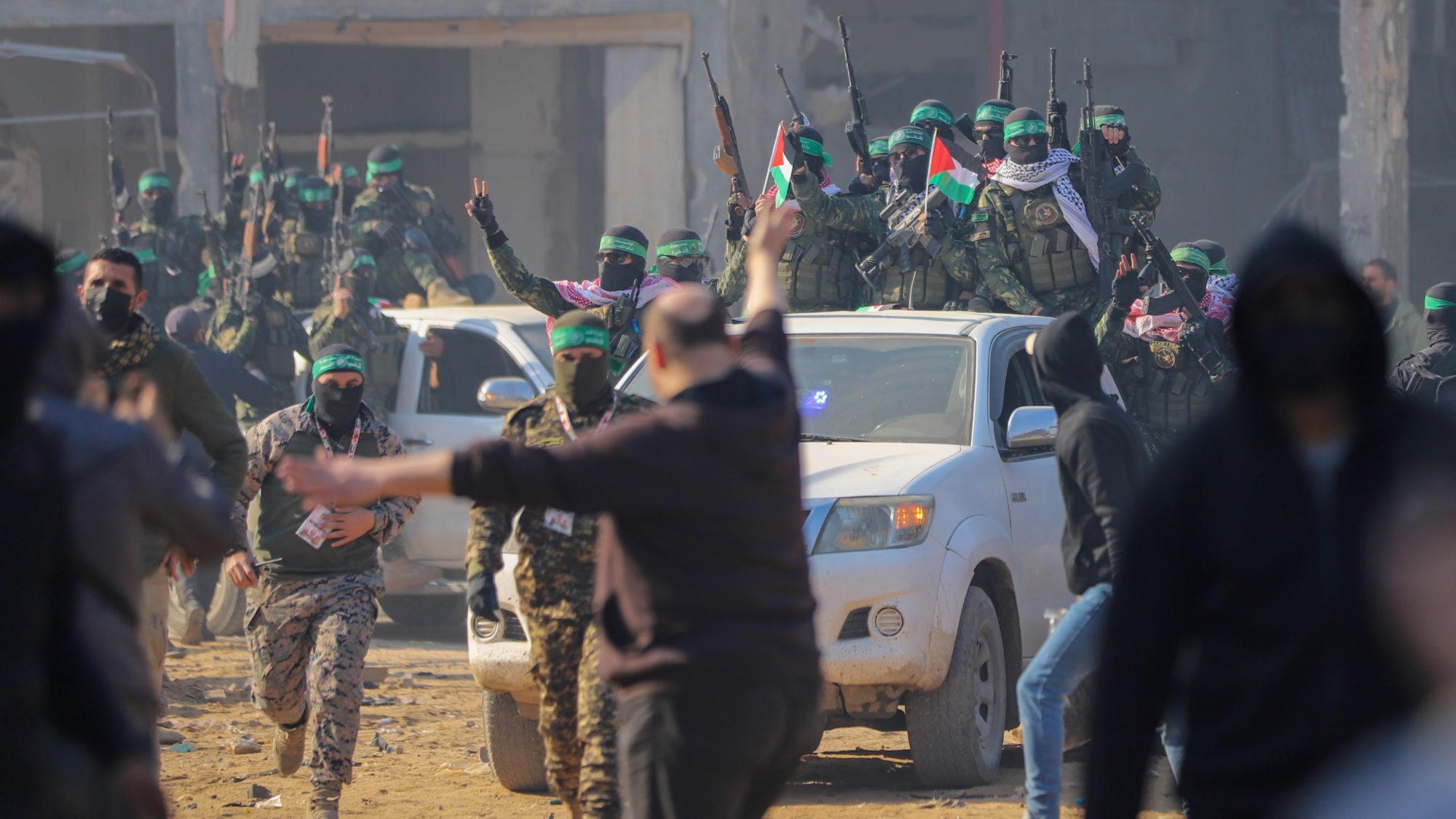
Negotiations for the second and third phases of the Israeli-Palestine cease-fire that finally took hold on Jan 19 after months of international urging and a frightening last-minute delay, offer little to celebrate.
Having witnessed every gruesome aspect of the Gaza genocide, including the murder of 263 UN staff members, United Nations Secretary-General Antonio Guterres could understand what the entire Global South laments — that global institutions have become mere playthings for powerful Western nations and their allies.
He also underlined that the cease-fire is just the beginning of a long, arduous process to halt a genocidal regime that has unrepentantly killed at least 47,000 Palestinians and wounded 110,450 others, apart from those killed in the West Bank after the Gaza truce, in dire trampling on the Geneva Conventions and international human rights law.
READ MORE: Arab nations oppose removing Palestinians from Gaza in letter to US
Yet the Israeli administration led by Benjamin Netanyahu has accused the UN and the entire UN General Assembly of being “anti-Semitic” and banned the United Nations Relief and Works Agency for Palestine Refugees in the Near East (UNRWA).
Now, we must ask: What kind of ethical, moral, and legal world order — if any — emerges from the ashes of Gaza? Where does the international community go from here?
As the UN resolutions demand a two-state solution to the Middle East crisis, the only viable way to enforce the Geneva Conventions is for more and more countries to unilaterally recognize a Palestinian state.
This effort should be at the forefront of diplomatic initiatives worldwide. North America, the European Union, and the entire Global South must enthusiastically pursue this path.
Only by ensuring that Palestine is recognized can we preserve the foundations of the global order that have been obliterated alongside Gaza.
The UN must take a leading role in the reconstruction and rehabilitation of Gaza, particularly through UNRWA. Reconstruction should not be merely an act of charity but a collective global responsibility. China, too, could offer its ingenuity and support rebuilding efforts in Gaza. Collectively, building Gaza could ensure hostilities do not reignite.
International NGOs such as World Central Kitchen, Save the Children, Islamic Relief, Oxfam, and other reputable charities could create a robust base and hire locals to participate in rebuilding Gaza.
The Hind Rajab Foundation and other like-minded NGOs and organizations must work to scour the internet and social media for videos and documentary evidence of the war crimes brazenly committed with impunity by Israel Defense Forces (IDF) soldiers.
The stench of death and devastation, the deliberate sniping of children, the cold-blooded murder of aid workers, and the horror of obliterating hospitals — all these atrocities must be meticulously documented and legally pursued.
Those guilty of war crimes must not find sanctuary anywhere in the world. The impunity with which so many IDF soldiers massacred women and children — who make up two-thirds of the dead — must be met with legal accountability. It is in the interest of the entire world that no single country or group of countries be allowed to flagrantly violate international law.
An international security force under UN auspices is essential to ensure that hostilities do not erupt again in the Occupied Palestinian Territories, including Gaza and the West Bank.
This force should be a diverse coalition, including European, Arab, and other regional actors. Its composition is crucial in deterring radical elements within Israel and beyond from dragging the region into another catastrophic war. Again, it would send a clear message that international law must be upheld at all costs.
READ MORE: Israeli strikes kill dozens in Gaza Strip as new cease-fire talks begin
The international community, alongside multilateral organizations such as the United Nations, the Organization of Islamic Cooperation, the Arab League, and the European Union should support the emergence of inclusive and indigenous leaders of Palestine. The new, non-partisan political structure must resonate with local communities and remain free from foreign interference. Building a legitimate and independent Palestinian leadership will eliminate any pretext used to reignite tensions.
One day, the cease-fire will not be observed as a victory but as a disgrace that marks the unconscionable delay that cost so many innocent lives. It is of critical global importance that the entire international community resist the brazen disregard for international rules and attempts to further inflame the Middle East.
Ultimately, history will remember the courage of the Palestinians who, against all odds, survived the equivalent of eight nuclear bombs and refused to submit to settler-colonial genocide. The question that remains is whether the world will learn from this or allow history to repeat itself yet again.
The author is a visiting research faculty member at the Al Waleed Center for Muslim-Christian Understanding of the Edmund A. Walsh School of Foreign Service at Georgetown University. He is also a sessional instructor at the Department of Political Science at the University of Alberta.
The views do not necessarily reflect those of China Daily.


